Decoding Munnariyippu’s Intriguing Ending: Symbolisms, References and More
There are films that entertain, films that enlighten, and then there are those rare gems that leave us pondering long after the credits roll. One such masterpiece is the 2014 Malayalam film, Munnariyippu, directed by Venu.
Munnariyippu in Malayalam translates to warning. Every point of Munnariyippu is a warning, a warning to what is coming. But we realize that only towards the end of, an ending which I find one of the scariest ones to ever exist in Indian cinema.
Also Read: Mammootty and the Art of Striking the Right Balance
Scattered warnings in Munnariyippu explain its ending
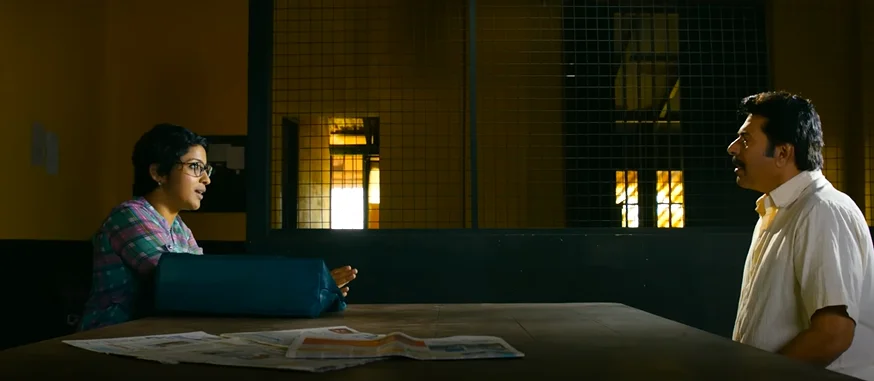
“I haven’t killed anyone”, CK Raghavan (Mammootty), a prisoner, tells Anjali (Aparna Gopinath), a journalist looking for her big break, during their first meeting at the prison. Raghavan has been behind bars for the last 20 years for double homicide. He has been convicted of killing his wife and the daughter of his employer. There is something interesting (even mysterious) that Anjali finds about Raghavan which pulls her to know more about him. Reading through his philosophical writings, Anjali’s interest in the mystery that Raghavan intensifies.
Anjali’s interest in Raghavan wasn’t just out of curiosity, but also the awareness that a bright future that lay ahead of her if she featured Raghavan’s story. And she gets to work. Her feature article wins the attention of leading publishers who book her to convert Raghavan’s story into a full-fledged book.
The life Anjali has been looking for has finally arrived, but this life lies in the hands of Raghavan, who needs to share his entire story for this book to materialize.
Who is CK Raghavan?
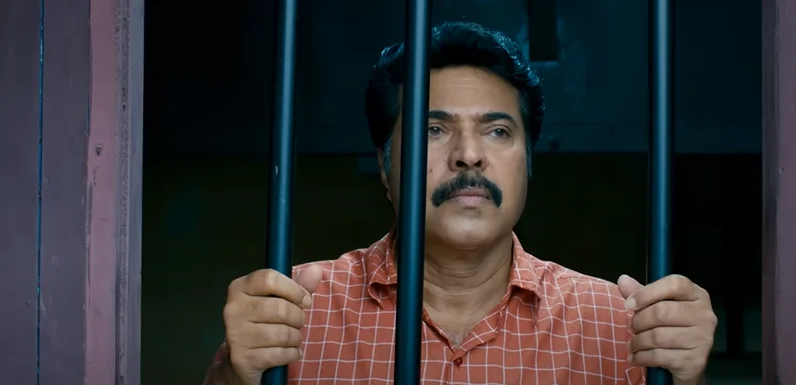
Taking the liberty of assuming that you have watched the movie, let me get right into the suspense. Anjali’s book deal falls through as Raghavan doesn’t cooperate with her in sharing his story. Finally making peace with what is, she goes to meet Raghavan one last time settling all his dues. But to her surprise, he has completed the story, which she reads. Her trembling fingers and sweating face make us wonder what has CK Raghavan written. As she reads through the end and looks up, scared as hell, Raghavan is standing with a smirk and kills her with one tight blow with a rod.
The guy who claimed he was innocent, the guy who wrote mind-boggling philosophical snippets, the guy who looked so innocent and harmless, was a psychotic murderer after all.
Explaining The Climax of Munnariyippu
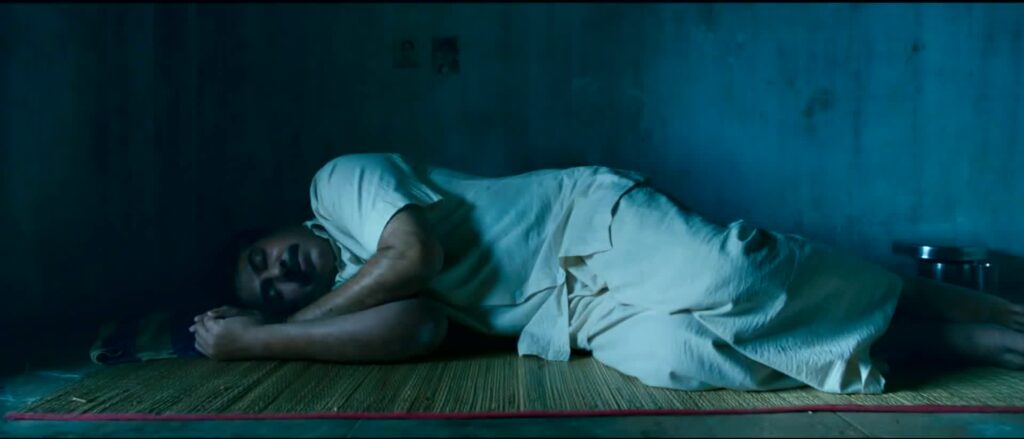
Killing Anjali naturally implies that he murdered his wife and his employer’s daughter as well. But why? That is where the genius of Munnariyippu lies. To understand Raghavan’s motif, we need to scroll back through his philosophical takes which lie scattered all through the movie.
In one scene, when Raghavan is out of jail and sipping alcohol at the bar, he quotes something that hints at his nature of being. He says, “Removing elements that obstruct the person is known as freedom. If it happens at home, it is called domestic abuse. If it happens in society, it is a revolution. Irrespective of where it happens where there is a revolution, blood will spill”.
Anjali took Raghavan out of jail, where he was absolutely happy with his life. He could write whatever he wanted, whenever he wanted; he was a free man. But Anjali forced him to write his story which he wasn’t interested in. She controlled every aspect of his life, becoming an obstruction in his path to live freely. And he did what he felt right, remove her from his life by killing her.
The same misfortune lies for his wife and the other woman he murdered. Somewhere they controlled his existence and he dealt with it his way, which is killing them.
Anjali had several warnings when she got into this mishap that killed her, but she didn’t observe them. She pushed till the end leading to her death. It is also a warning for us to be prepared for something that we aren’t expecting at all, something that will leave us gasping for breath as the end credits roll.
CK Raghavan, now back in jail, his happy place has three photos instead of the initial two; his wife, the employer’s daughter, and Anjali. Are these photos a reminder for him about his free life? Or are they a reminder of the guilt he carries for his horrendous act? We will never know.

I can’t stop talking about films, so I blog!
I started The FourthWall, my film blog, to share my thoughts on films and shows with fellow movie buffs, and over the years it has become my happy place. Come join in for some interesting conversations on cinema… and sometimes books and fashion!

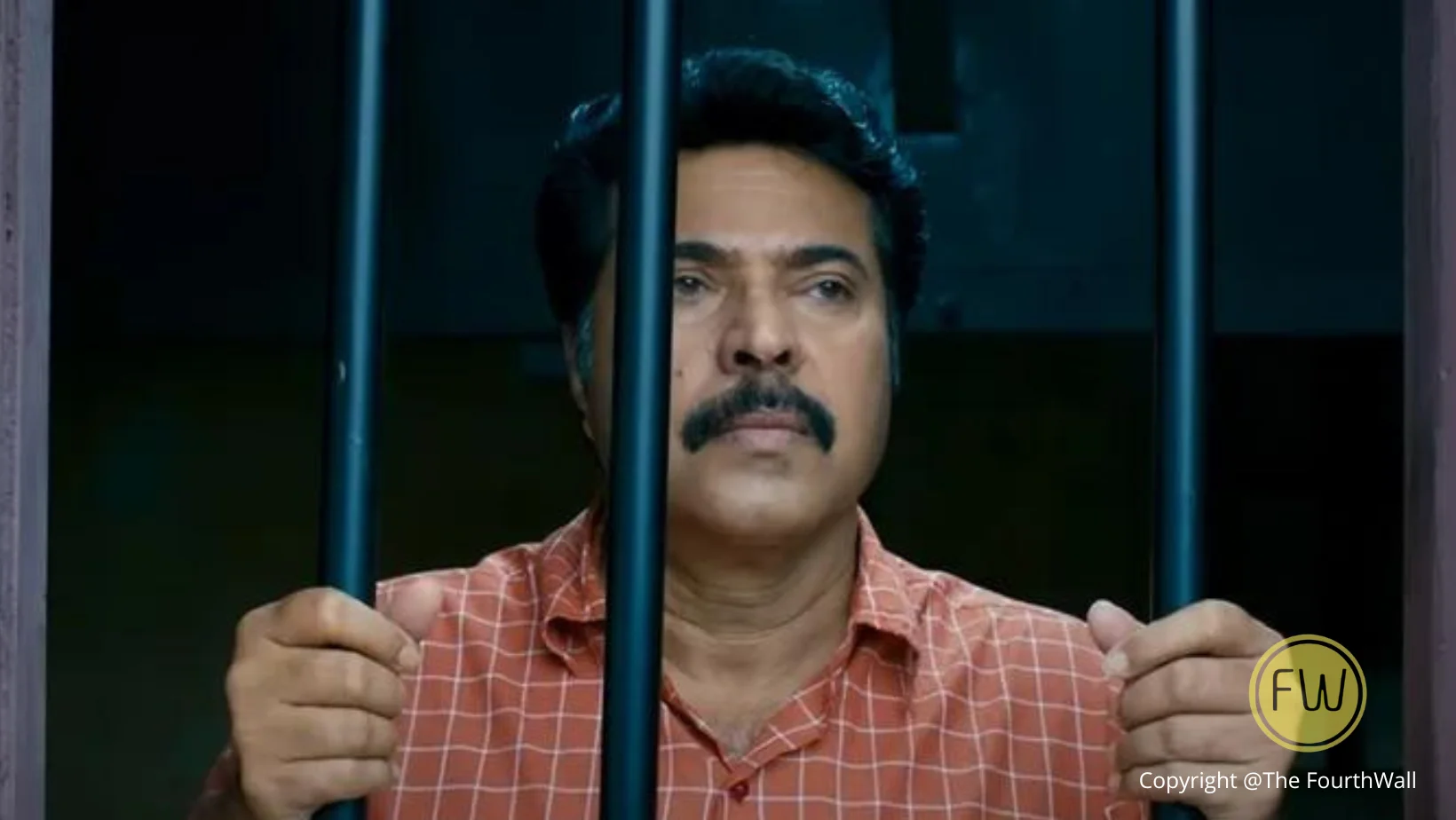

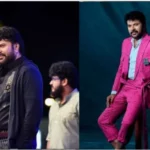

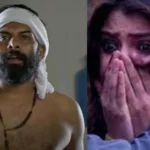
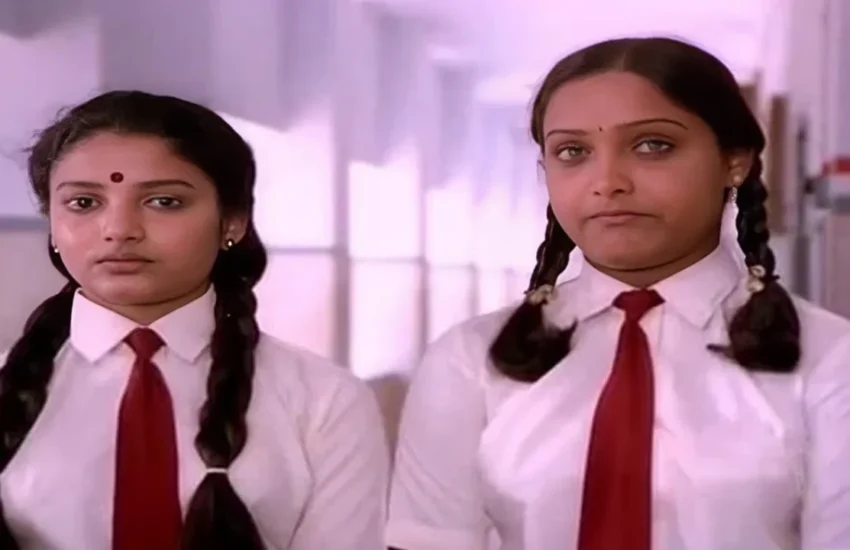
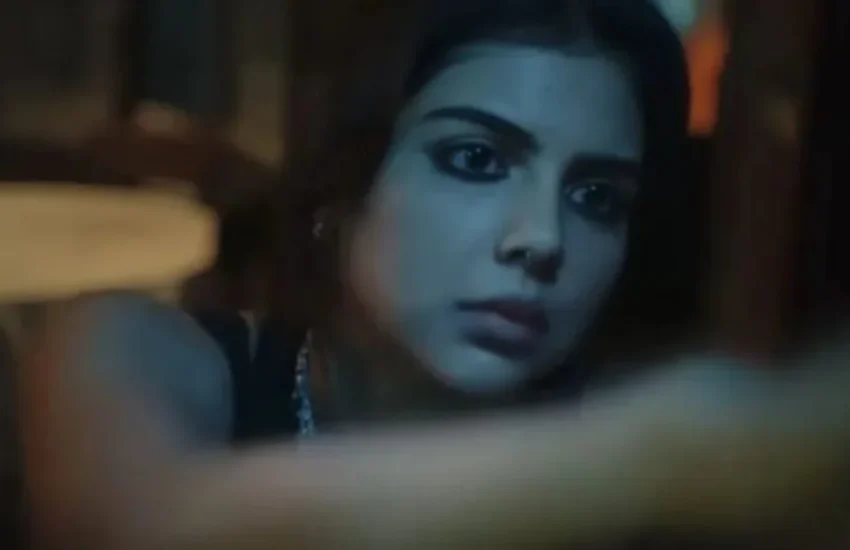

One thought on “Decoding Munnariyippu’s Intriguing Ending: Symbolisms, References and More”